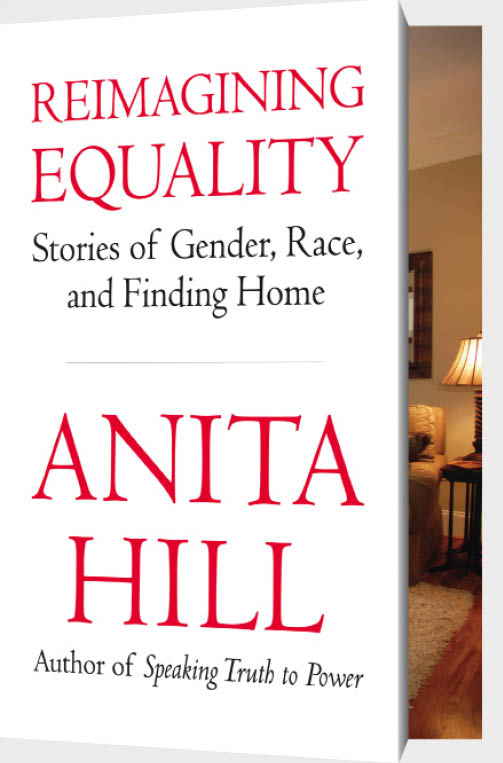Anita Hill - Reimagining equality: stories of gender, race, and finding home
Here you can read online Anita Hill - Reimagining equality: stories of gender, race, and finding home full text of the book (entire story) in english for free. Download pdf and epub, get meaning, cover and reviews about this ebook. City: Boston, Mass., United States, year: 2011, publisher: Beacon Press, genre: Home and family. Description of the work, (preface) as well as reviews are available. Best literature library LitArk.com created for fans of good reading and offers a wide selection of genres:
Romance novel
Science fiction
Adventure
Detective
Science
History
Home and family
Prose
Art
Politics
Computer
Non-fiction
Religion
Business
Children
Humor
Choose a favorite category and find really read worthwhile books. Enjoy immersion in the world of imagination, feel the emotions of the characters or learn something new for yourself, make an fascinating discovery.

- Book:Reimagining equality: stories of gender, race, and finding home
- Author:
- Publisher:Beacon Press
- Genre:
- Year:2011
- City:Boston, Mass., United States
- Rating:3 / 5
- Favourites:Add to favourites
- Your mark:
Reimagining equality: stories of gender, race, and finding home: summary, description and annotation
We offer to read an annotation, description, summary or preface (depends on what the author of the book "Reimagining equality: stories of gender, race, and finding home" wrote himself). If you haven't found the necessary information about the book — write in the comments, we will try to find it.
Abstract: In 1991, Anita Hills courageous testimony during the Clarence Thomas confirmation hearings sparked a national conversation on sexual harassment and womens equality in politics and the workplace. Today, she turns her attention to another potent and enduring symbol of economic success and equality-the home. Hill details how the current housing crisis, resulting in the devastation of so many families, so many communities, and even whole cities, imperils every Americans ability to achieve the American Dream. Hill takes us on a journey that begins with her own family story and ends with the subprime mortgage meltdown. Along the way, she invites us into homes across America, rural and urban, and introduces us to some extraordinary African American women. As slavery ended, Mollie Elliott, Hills ancestor, found herself with an infant son and no husband. Yet, she bravely set course to define for generations to come what it meant to be a free person of color. On the eve of the civil rights and womens rights movements, Lorraine Hansberrys childhood experience of her familys fight against racial restrictions in a Chicago neighborhood ended tragically for the Hansberry family. Yet, that episode shaped Lorraines hopeful account of early suburban integration in her iconic American drama A Raisin in the Sun. Two decades later, Marla, a divorced mother, endeavors to keep her children safe from a growing gang presence in 1980s Los Angeles. Her story sheds light on the fears and anxiety countless parents faced during an era of growing neighborhood isolation, and that continue today. In the midst of the 2008 recession, hairdresser Anjanette Bookers dogged determination to keep her Baltimore home and her salon reflects a commitment to her own independence and to her communitys economic and social viability. Finally, Hill shares her own journey to a place and a state of being at home that brought her from her roots in rural Oklahoma to suburban Boston, Massachusetts, and connects her own search for home with that of women and men set adrift during the foreclosure crisis. The ability to secure a place that provides access to every opportunity our country has to offer is central to the American Dream. To achieve that ideal, Hill argues, we and our leaders must engage in a new conversation about what it takes to be at home in America. Pointing out that the inclusive democracy our Constitution promises is bigger than the current debate about legal rights, she presents concrete proposals that encourage us to reimagine equality. Hill offers a twenty-first-century vision of America-not a vision of migration, but one of roots; not one simply of tolerance, but one of belonging; not just of rights, but also of community-a community of equals--Provided by publisher
Anita Hill: author's other books
Who wrote Reimagining equality: stories of gender, race, and finding home? Find out the surname, the name of the author of the book and a list of all author's works by series.






